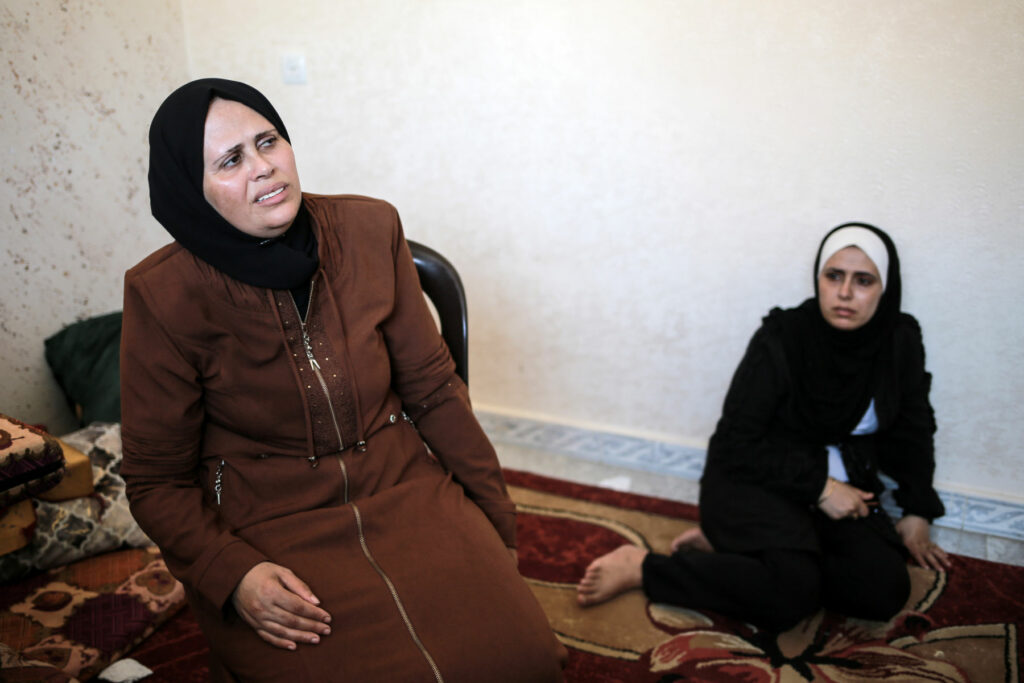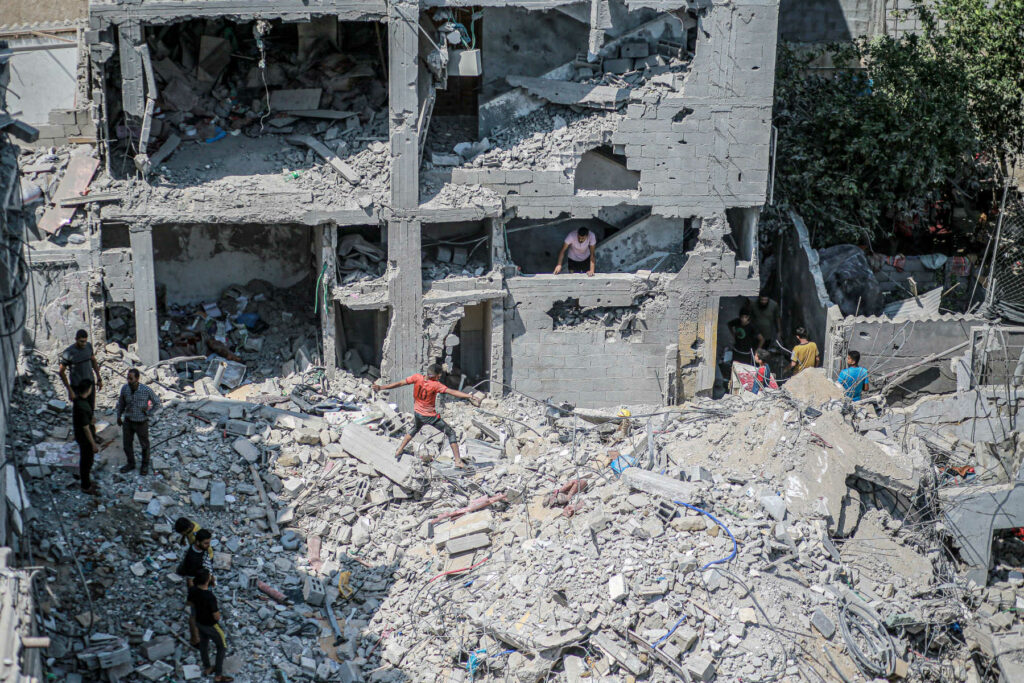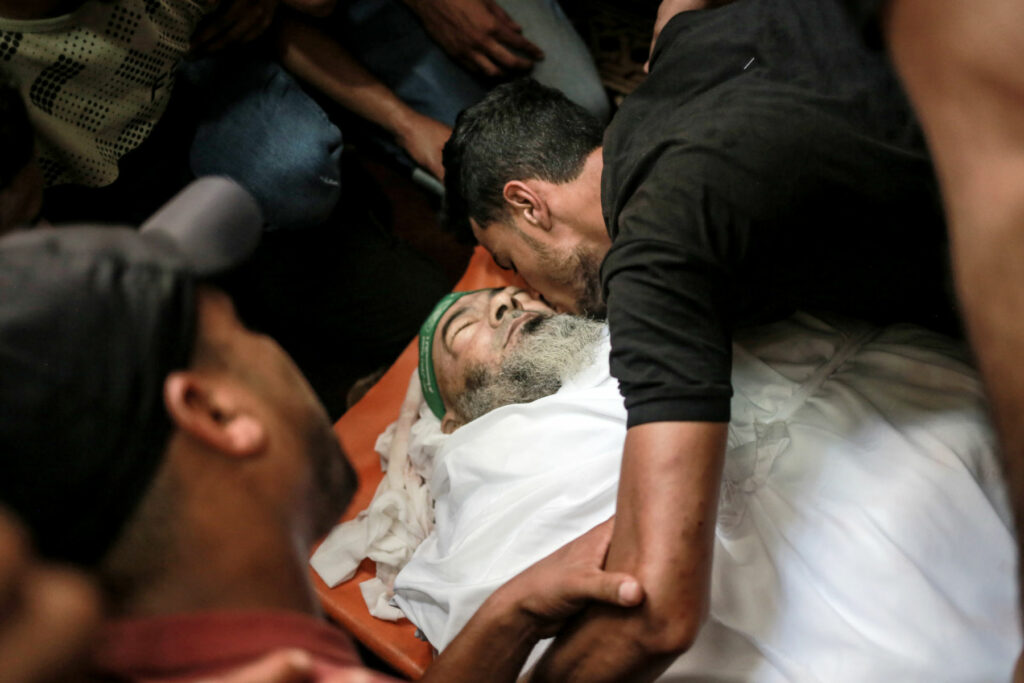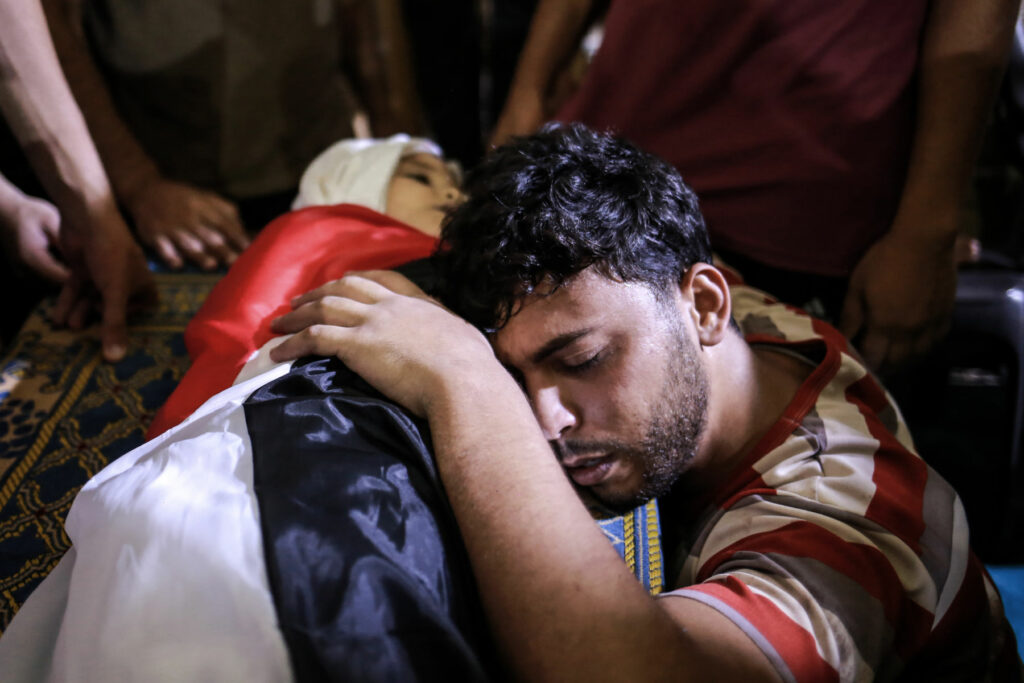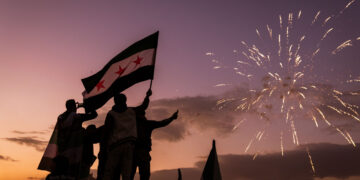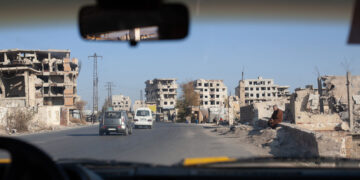Hosam Salem is an award-winning Palestinian photographer and photojournalist, whose work has appeared in The New York Times, Al Jazeera English and many other outlets.
Editor's note: This article contains graphic images, including of dead bodies.
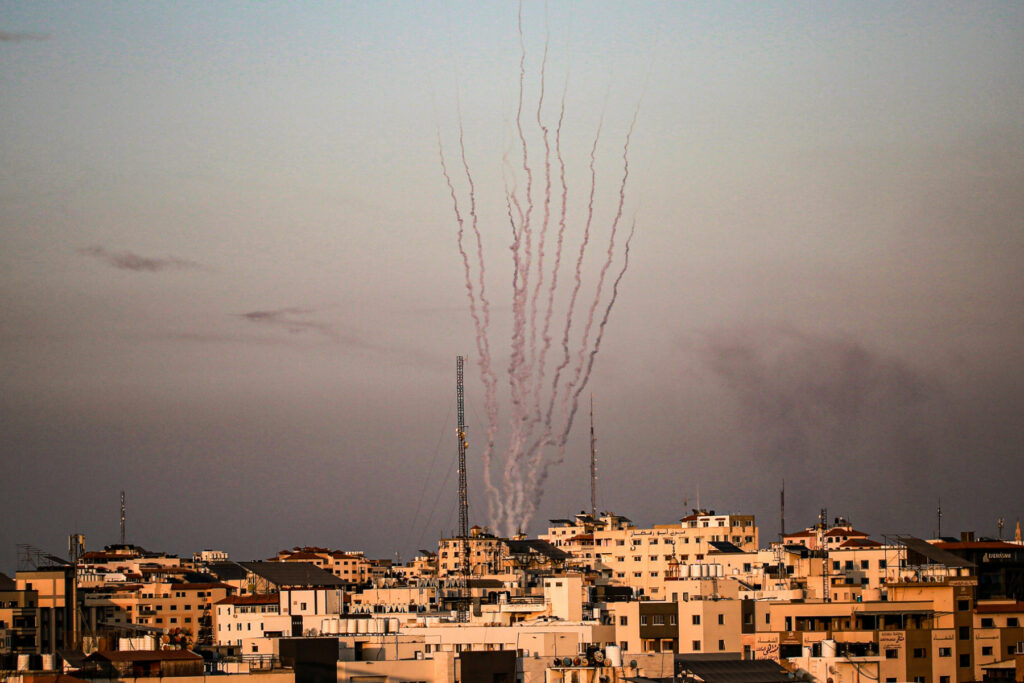
On the afternoon of Aug. 5, Israel began its military operation in Gaza against Islamic Jihad, based on claims of the armed group's threats to respond to Israel's arrest of their commander in the West Bank, Bassam al-Saadi. The airstrikes in Gaza, in an operation that Israel called "Breaking Dawn," lasted for three days and ended with a conditional armistice under the auspices of Egypt as mediator.
Israel triggered the attacks, first assassinating Tayseer al-Jabari, a top Islamic Jihad leader, in an airstrike on an apartment building in Gaza City, and then targeting a senior commander, Khaled Mansour, in Rafah, in the southern Gaza Strip. Israeli airstrikes later hit various targets across Gaza that Israel claimed belonged to Islamic Jihad, while the armed group fired rockets into Israel in retaliation. When Israel's three-day offensive ended, 49 Palestinians had been killed, including 17 children and four women, and some 360 Palestinians wounded, according to the Ministry of Health in Gaza. More than 1,500 housing units were damaged by Israel's bombing campaign, and approximately 450 Palestinians were displaced from homes that were totally destroyed.
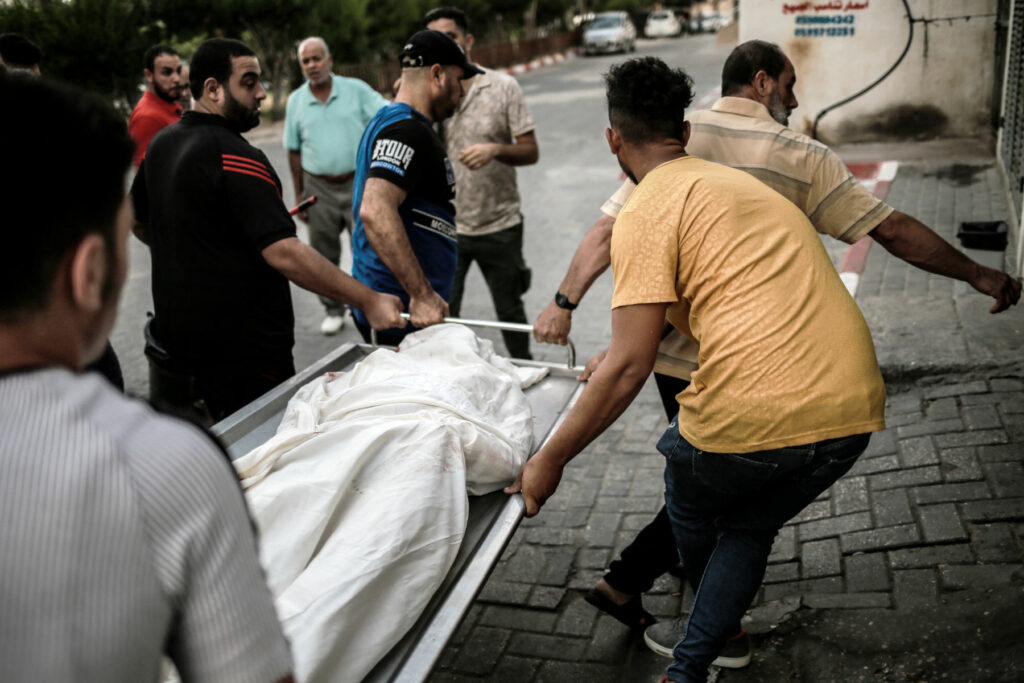
We headed to Ibrahim Shamalakh's house, which was destroyed by Israeli missiles, west of Gaza City. "Isn't this tragic? Our market is destroyed, and the house is the same," said a member of the family, 68-year-old Nadia Shamalakh. "We were at our home with our children and grandchildren having breakfast, when we heard our neighbors screaming as their home was bombed. We ran away as we are. We didn't even take any of our belongings. Everything is completely destroyed, even our memories."
After I took these photos, I still see the grieving Palestinians in them, weeping at the loss of their loved ones, their homes and their lives.
- Hosam Salem
At al-Shifa Hospital, Raed Rajab was still receiving treatment with his son, three daughters and his wife, who were all injured together by Israeli airstrikes targeting their house in Shejaiya, a neighborhood of Gaza City. "It was my only son, my wife and my daughters, who are in elementary school, who were at home," he said. "There wasn't any military target as Israel claims. Now, I am here at the hospital, and my family is in a different department receiving treatment."
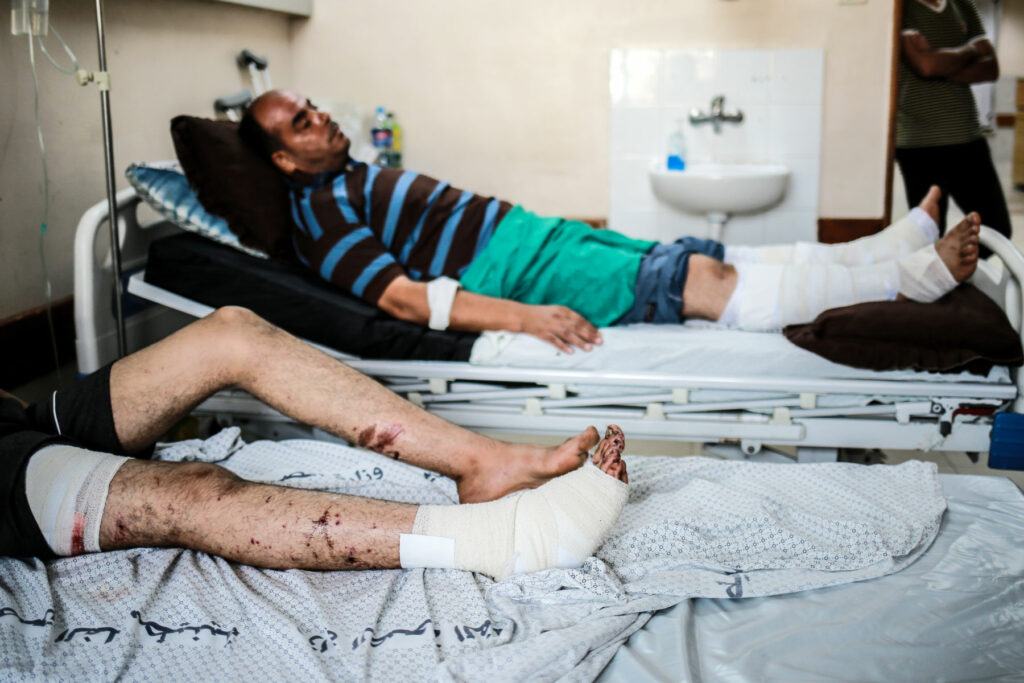
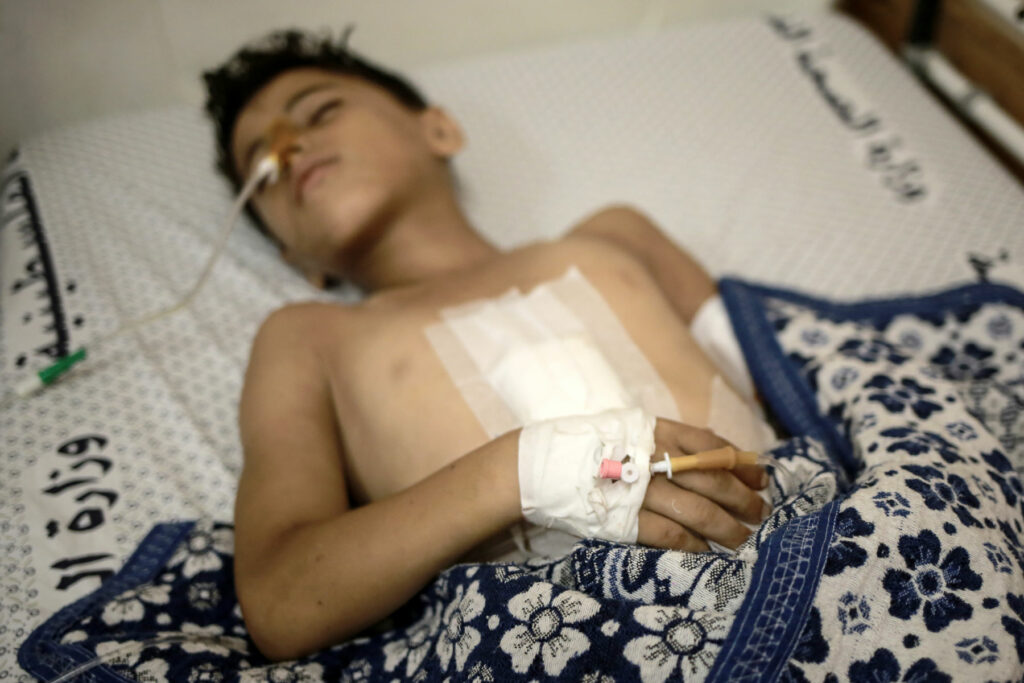
Next to him, Ghassan Abu Ramadan, an engineer, was also receiving medical care, while his daughter and wife were being treated in another ward of the hospital. They were injured in the Israeli airstrikes on an apartment in the Palestine Tower, in the center of Gaza City—the building that Israel bombed to kill Jabari.
Akram Abu Qaida was preparing to bring his new bride to the city of Beit Hanoun, in northern Gaza, but without any kind of joy or celebration, as Israeli airstrikes continued. Minutes before he planned to leave to get her, a missile struck his house and the car outside, killing his 62-year-old mother, Naama Abu Qaida, and her granddaughter, 8-year-old Haneen. Four other children from the Abu Qaida family were also injured in the bombing.
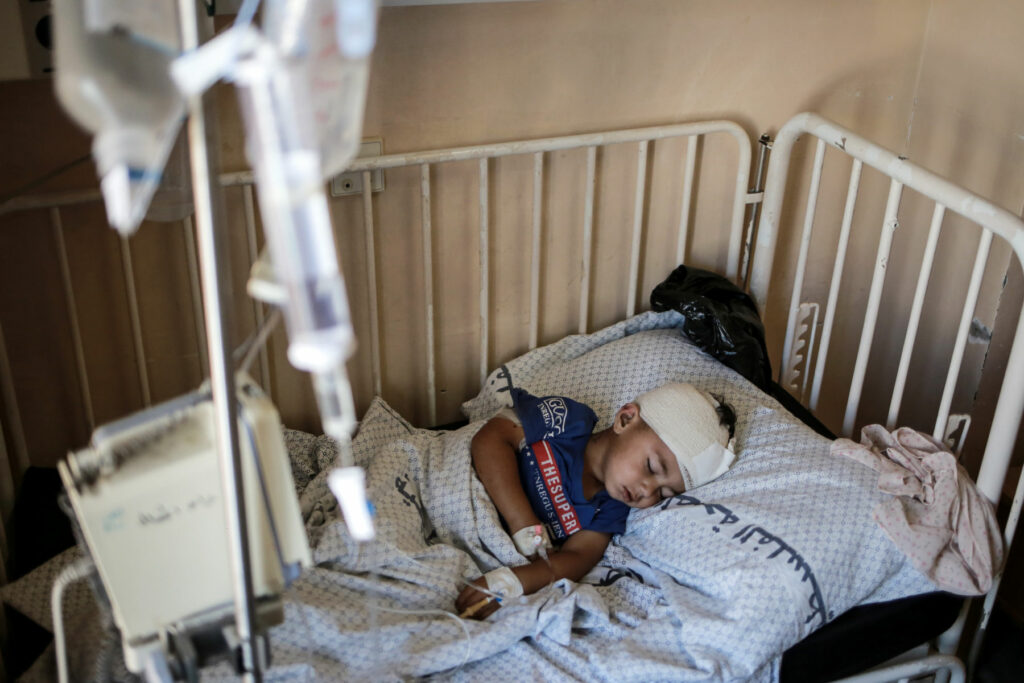
Abdul Hamid Dweik lost his wife and son in an Israeli airstrike that destroyed several residential buildings in al-Shaout, in the center of Rafah. "Ismail was getting prepared for his wedding when they targeted him," he said of his son, who was 30. "As usual, he did not leave his mother, even on the day they died. He hugged her the way she did when she brought him to life," Abdul Hamid Dweik added. "The most precious thing in my life is gone." The attack apparently targeted the nearby home of Mansour, Islamic Jihad's commander in southern Gaza.
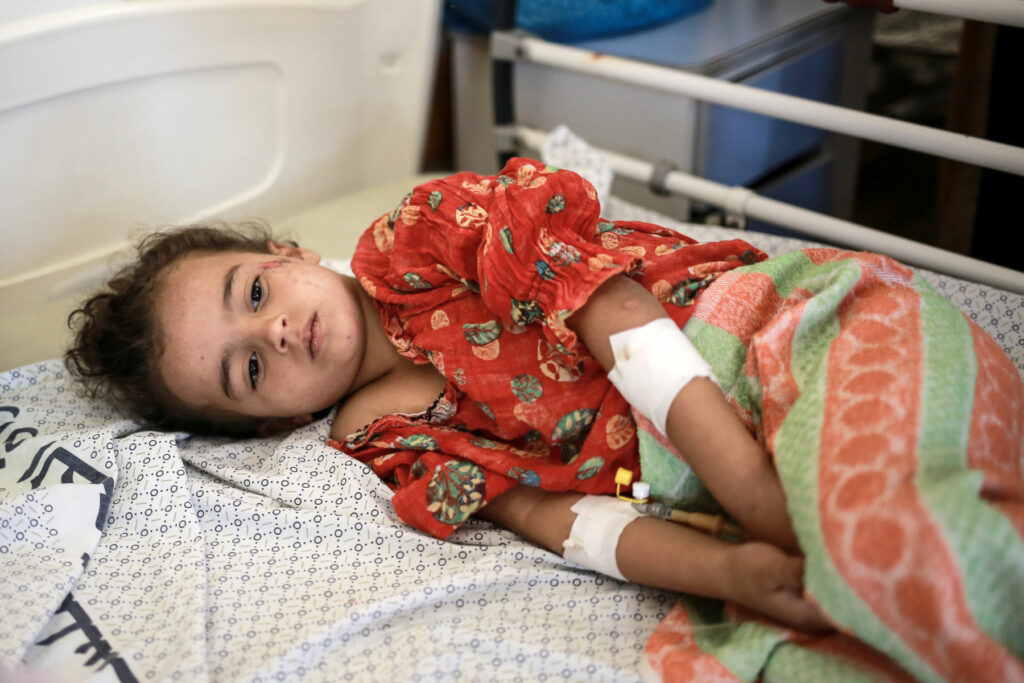
These are the images that fade from international coverage once the bombing stops, if they are seen at all. As I told The Intercept just after the cease-fire that ended this Israeli offensive, "In Gaza, there are no stories that can give us life; all we can say is how death has taken our lives and the lives of those around us." John Kirby, the spokesman for President Joe Biden's National Security Council, gave the usual American response to Israel's airstrikes, ignoring who launched this latest attack on Gaza and who killed 17 Palestinian children. "We certainly urge all parties to avoid further escalations," Kirby said. "We fully support Israel's right to defend itself against terrorists who take the lives of innocent civilians in Israel."
After I took these photos, I still see the grieving Palestinians in them, weeping at the loss of their loved ones, their homes and their lives.
